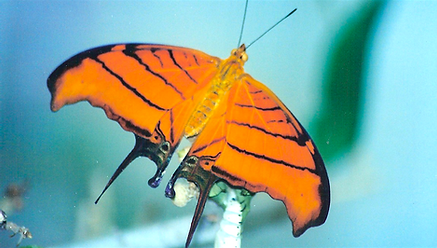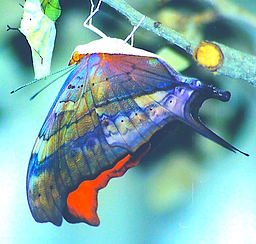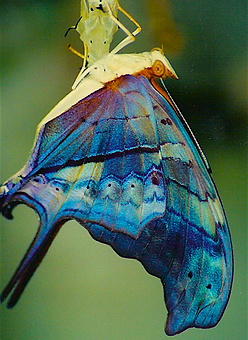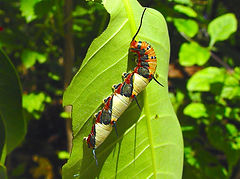

Marpesia petreus, Ruddy Daggerwing
All photographs are copywrited property. Please contact us for permission to use.

Freshly emerged male
Description: 34-43 mm. Dorsally, this species is bright orange with black stripes. Females are more brownish orange than males. There is a long pair of tails on the hind wings and then another shorter tail. Ventrally, the males are drab brown in appearance. Females are darker brown with fresh specimens having an impressive purple iridescent sheen.
Habitat and Distribution: This species is common in South Florida, Central and South America. It lives in the canopy of hammocks and forests where host tree occurs. In the Keys it has been reported from most of the larger Keys.
Host Plant: Short-leafed fig (Ficus citrifolia)
Natural History: This has always been one of my favorites growing up. I remember looking up in the treetops waiting for hours for one to come down. Males are very territorial and swoop down from the canopy after my red net handle thinking it is another male daggerwing. I began enticing them down from the tree tops intentionally by waving the net handle upsidedown. This species can be common anywhere there are fig trees. Various white flowers work best for attracting them such as (Cordia glabrosa) and (Bidens alba). The caterpillar is spectacular as well! It's a fun butterfly to rear. This species is not as common in the Keys as it is in the mainland however and can be quite rare in the lower Keys.


Final instar larva

Final instar larva

Chrysalis

Freshly emerged male

Males at flowers

Freshly emerged male








Flip Through
Species Pages